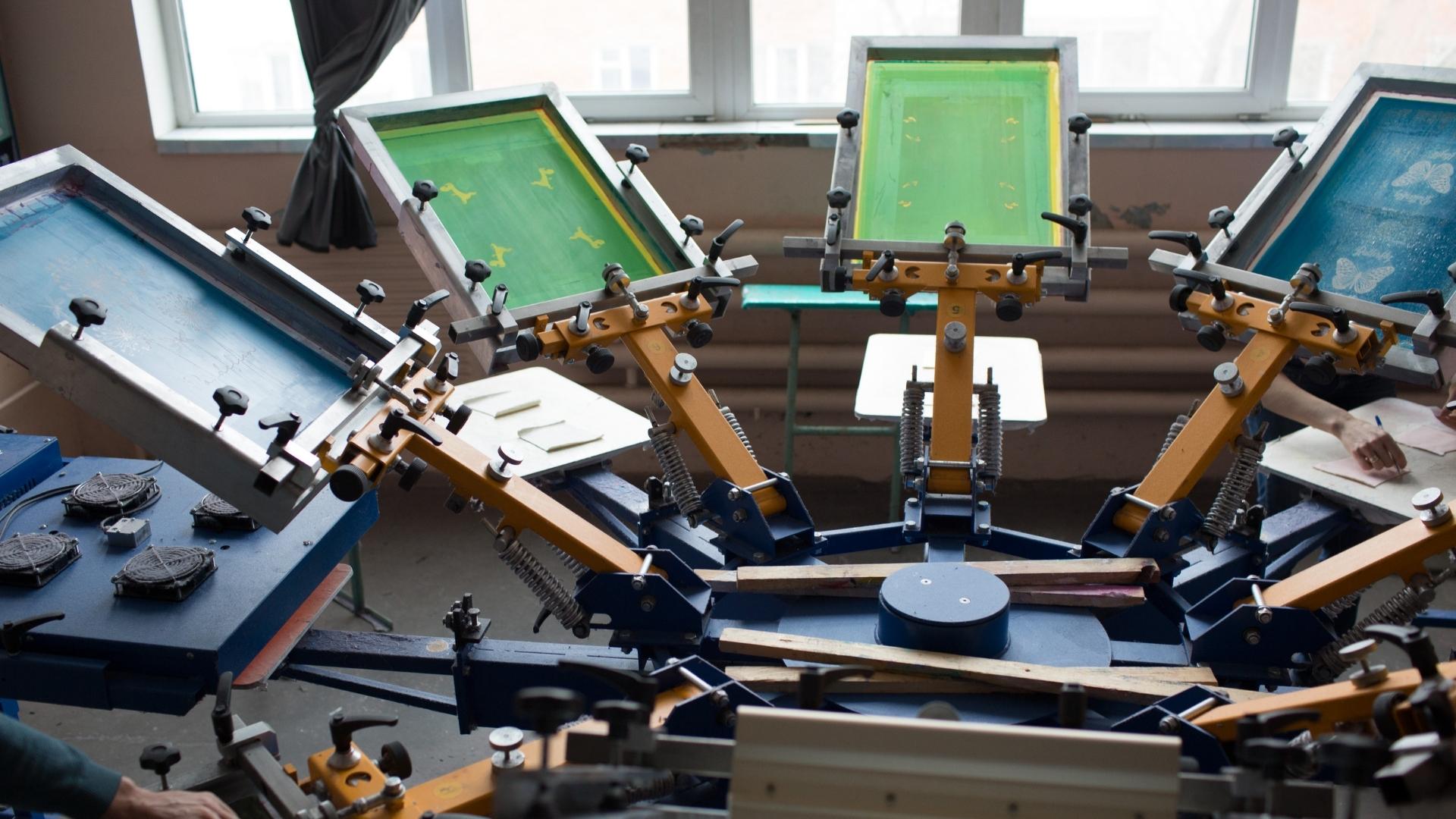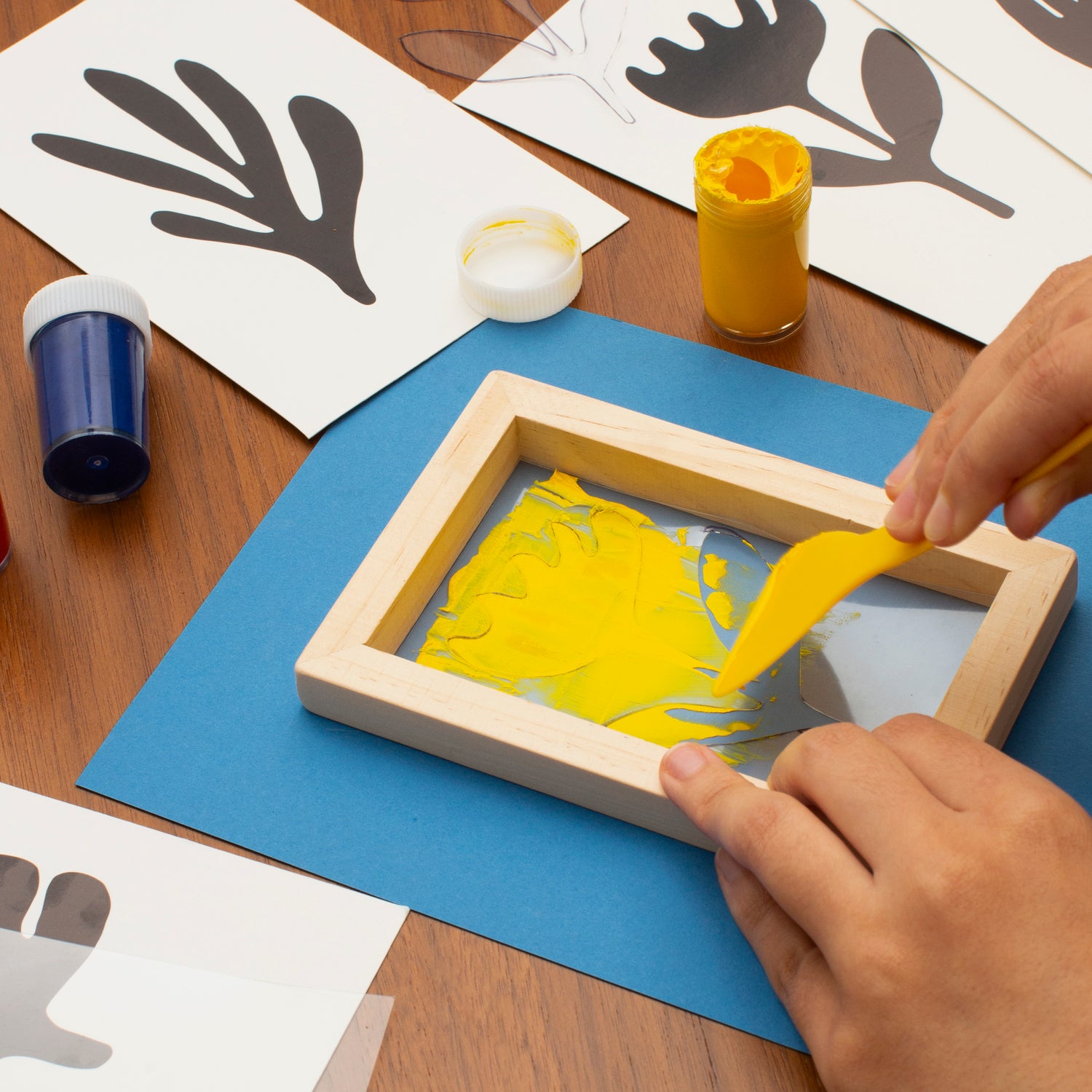The Crucial Overview to Understanding Screen Printing and Its Versatile Makes use of
Screen printing has a rich background that dates back to ancient times, advancing into an advanced strategy utilized throughout numerous sectors today. This guide discovers the details of the screen printing process, describing its applications in home, marketing, and fashion décor - 10:9 Design Screen Printing Texas. Understanding these principles can open up imaginative potential for both artistic and business tasks. The complying with areas will certainly reveal important pointers and strategies to improve one's screen printing undertakings
The History of Screen Printing
Although screen printing has origins that trace back centuries, its evolution reflects the technological and imaginative developments of different societies. Coming from in ancient China, the method was initially used for embellishing fabrics and later spread to Japan, where it ended up being essential to Ukiyo-e woodblock printing. The technique changed to Europe in the 18th century, where it gained appeal amongst craftsmens and industrial printers. The innovation of picture emulsion in the 20th century transformed screen printing, permitting for even more elaborate designs and greater efficiency. Artists like Andy Warhol better thrust its popularity, utilizing the medium to develop renowned jobs that combined commercialism and fine art. By the late 20th century, screen printing had developed itself as a flexible strategy, employed in fashion, advertising and marketing, and fine art. Today, it remains to advance, incorporating electronic modern technology and increasing its applications throughout numerous markets.
The Screen Printing Refine Explained
Screen printing transforms creative visions into concrete designs via a series of specific actions. A photo is produced and after that moved onto a screen, typically made of great mesh fabric stretched over a structure. A light-sensitive emulsion is put on the screen, which is revealed to light, setting in locations not covered by the photo. After rinsing the unhardened solution, a pattern is created.
Next off, the screen is positioned over the substratum, whether it be textile, paper, or another product. Ink is after that pressed through the open areas of the pattern utilizing a squeegee, depositing the style onto the substrate below. This process can be repeated for multiple colors, requiring separate displays for each tone. Lastly, the published item is treated making use of warm to guarantee the ink sticks effectively, causing a long lasting, vivid style on-line.
Sorts Of Screen Printing Techniques

Additionally, specialty techniques, such as discharge screen printing, get rid of dye from the textile to develop softer prints, while foil screen printing uses metal aluminum foil to attain a shiny coating (10:9 Design Abilene). Each method uses distinctive qualities, dealing with numerous innovative requirements and manufacturing ranges, inevitably expanding the opportunities within the screen printing domain
Applications of Screen Printing in Various Industries

Additionally, the signage and advertising markets use screen printing for producing captivating screens and banners. This approach pvc yard signs enables strong shades and complex layouts that record attention. In electronic devices, screen printing is printing and signs near me used for applying conductive inks to circuit boards, essential for element links. Additionally, the home design sector welcomes screen printing to generate unique styles on textiles and wall surface art. In general, screen printing functions as a critical tool throughout varied fields, boosting products with individualized and visually attractive graphics.
Tips for Successful Screen Printing Projects
While taking on a screen printing job, mindful focus to detail can substantially boost the final result. Initially, selecting high-grade products is vital; this consists of the screen, inks, and substratums. Making use of appropriate mesh matters can affect ink deposition and information resolution. Prep work is just as essential; detailed cleaning of displays and appropriate direct exposure times ensure crisp prints.
Next off, precise registration is crucial for multi-color prints. Using positioning tools can aid accomplish exact layering. In addition, testing prints on scrap products prior to manufacturing assists identify prospective concerns without losing sources.

Frequently Asked Questions
What Materials Are Ideal for Screen Printing on Textile?
Cotton and polyester blends are perfect for screen printing on fabric because of their toughness and ink absorption. In addition, specialized materials like silk or canvas can produce unique structures and finishes, enhancing the general style quality.
How Do I Clean and Maintain Screen Printing Tools?
To cleanse and maintain screen printing equipment, one ought to consistently wash displays with appropriate solvents, examine squeegees for wear, lube moving parts, and store all products in a completely dry, dust-free setting to lengthen their life-span.
What Are the Ecological Influences of Screen Printing?
Screen printing can have significant ecological impacts, including chemical waste from solvents and inks, water usage throughout cleansing processes, and power intake. Lasting practices and environment-friendly materials are essential for minimizing these unfavorable effects.
Can Screen Printing Be Done in the house Efficiently?
Screen printing can be properly done at home with the ideal products and techniques. Enthusiasts can create high quality prints, though success depends upon their skill level, tools, and understanding of the process included.
What Are the Costs Related To Starting a Screen Printing Organization?

Beginning a screen printing company includes expenses for tools, materials, and workspace. Initial costs generally vary from a couple of hundred to numerous thousand dollars, relying on the range, high quality of equipment, and wanted production ability.
Screen printing has an abundant background that dates back to ancient times, progressing into an advanced technique made use of throughout different markets today. An additional technique, rotary screen printing, uses round screens, promoting constant printing on textile rolls, consequently improving performance for large-scale productions. Furthermore, specialty methods, such as discharge screen printing, get rid of dye from the textile to produce softer prints, while foil screen printing applies metal foil to attain a shiny surface. In the fashion field, screen printing is commonly made use of to create dynamic styles on apparel, enabling brand names to showcase their distinct designs. Cotton and polyester blends are suitable Visit Website for screen printing on fabric due to their resilience and ink absorption.